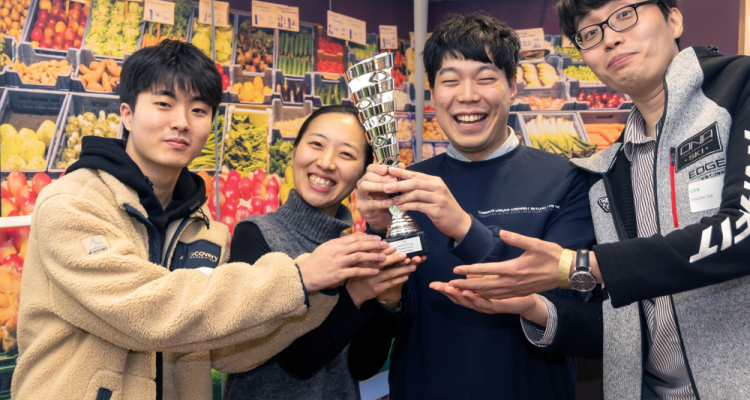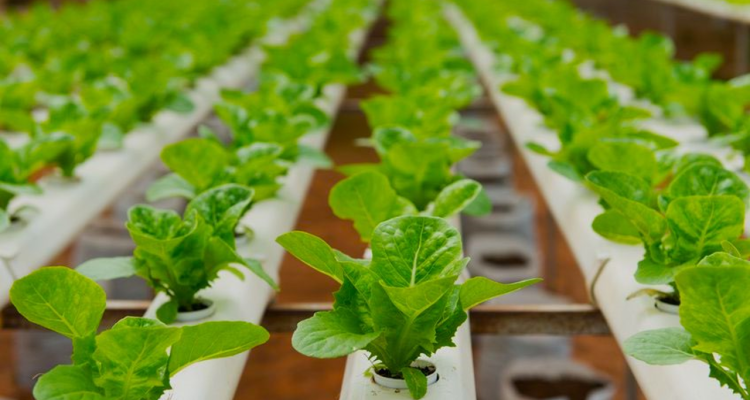IT tycoons gathered for the International Artificial Intelligence Greenhouse Planting Challenge

In the "Hackathon" stage of the 3rd International Smart Greenhouse Planting Challenge jointly organized by WU and Tencent, 17 international teams competed for 24 hours. The event organizers announced the five winning teams (CVA, digital_cucumber, MondayLettuce, VeggieMight and Koala). They have qualified for the "Greenhouse Challenge" to be held from February to June 2022. In the "Greenhouse Challenge", participating teams will use artificial intelligence algorithms to produce lettuce in a fully automated greenhouse without human intervention.
In the “Hackathon” phase of the competition, an international jury judged the teams’ AI methods (40% of the total score) and the net profit from growing lettuce in a virtual greenhouse (60% of the total score). %) two types of indicators for scoring.

Five winning teams:
· The CVA team from South Korea won first place with a score of 87 points. The team placed second in the "Online Challenge" phase of the competition. This time, they once again showed stable strength in the "Hackathon". CVA is the abbreviation of Crop Vision and Automation. The team members come from Gyeonggi University of Science and Technology, Croft, Motion2AI, and Universal Robots. Some of these members have also participated in the previous two International Smart Greenhouse Cultivation Challenges.
· The digital_cucumber team from Russia won the second place. The team members come from the Russian Agricultural Bank of Russia, the Russian Higher University of Economics, Lomonosov Moscow State University, the Russian State Agricultural University, the Moscow Dimiryazev Agricultural Institute, and the Moscow Institute of Physics and Technology.
· The third-place Monday Lettuce team is also from South Korea, with team members from Kangwon National University, Pusan National University and ioCrops.
· VeggieMight finished fourth. Team members come from Quantum, Polestar Agriculture, Horticompass Agritech Consultants, Robolect B.V, and Wageningen University & Research. This team completed the "hackathon" task as quickly as possible.
· In addition, in the "Online Challenge" held this summer, the "Koala" team from the United States has obtained a "Greenhouse Challenge" pass card. The content of the "Online Challenge" not only includes climate optimization control, but participating teams also need to develop computer vision algorithms based on image training and use the algorithms to infer plant characteristics that are not in the images presented. Kenneth Tran, the captain of the "Koala" team, led the "Sonoma" team to win the first international smart greenhouse planting challenge held in 2019. Congratulations to "Koala" team captain Kenneth Tran and all team members (Neil Mattson, Minh Duong, Hanh Bui, Tim Shelford and Michael Eaton) for getting pass cards.
During the Hackathon, participating teams presented their self-developed and used artificial intelligence technologies for climate control and crop production to a panel of internationally renowned experts in the field of horticulture and artificial intelligence. The artificial intelligence technology of the participating teams accounts for 40% of the total score.
The participating teams received access to a climate model and a lettuce crop growth model developed by University of Watt researchers. The other 60 percent of the score is based on the team's net profit from growing lettuce in the virtual greenhouse.
Organizers need to ensure that these models are suitable for the various competition situations of the competition. Crops may react in unexpected ways. Participating teams need to use self-developed artificial intelligence algorithms to determine artificial lighting, temperature, carbon dioxide supplementation, and crop spacing, and operate them through computers. Although the teams were growing crops in a virtual environment, they had to take weather factors into account and create a realistic environment that couldn't be reworked.
Starting in February 2022, these teams will use the artificial intelligence algorithms they developed to conduct two cycles of lettuce production in fully automated greenhouses without human intervention. In the first production cycle, teams will test their respective algorithms and obtain relevant data. Teams can then improve their algorithms. The second cycle of crop production begins in May. The competition will select the final winning team based on the results of this stage.
